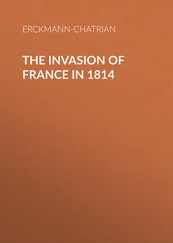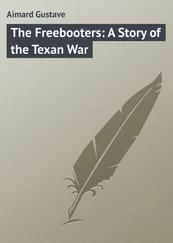Erckmann-Chatrian - The Conscript - A Story of the French war of 1813
Здесь есть возможность читать онлайн «Erckmann-Chatrian - The Conscript - A Story of the French war of 1813» — ознакомительный отрывок электронной книги совершенно бесплатно, а после прочтения отрывка купить полную версию. В некоторых случаях можно слушать аудио, скачать через торрент в формате fb2 и присутствует краткое содержание. Жанр: foreign_antique, foreign_prose, Историческая проза, на английском языке. Описание произведения, (предисловие) а так же отзывы посетителей доступны на портале библиотеки ЛибКат.
- Название:The Conscript: A Story of the French war of 1813
- Автор:
- Жанр:
- Год:неизвестен
- ISBN:нет данных
- Рейтинг книги:4 / 5. Голосов: 1
-
Избранное:Добавить в избранное
- Отзывы:
-
Ваша оценка:
- 80
- 1
- 2
- 3
- 4
- 5
The Conscript: A Story of the French war of 1813: краткое содержание, описание и аннотация
Предлагаем к чтению аннотацию, описание, краткое содержание или предисловие (зависит от того, что написал сам автор книги «The Conscript: A Story of the French war of 1813»). Если вы не нашли необходимую информацию о книге — напишите в комментариях, мы постараемся отыскать её.
The Conscript: A Story of the French war of 1813 — читать онлайн ознакомительный отрывок
Ниже представлен текст книги, разбитый по страницам. Система сохранения места последней прочитанной страницы, позволяет с удобством читать онлайн бесплатно книгу «The Conscript: A Story of the French war of 1813», без необходимости каждый раз заново искать на чём Вы остановились. Поставьте закладку, и сможете в любой момент перейти на страницу, на которой закончили чтение.
Интервал:
Закладка:
"Sit there, Joseph, opposite the window, that I may look at you. But you must fix my watch, for I do not know where to put it."
I passed the chain around her neck, and then, seating ourselves, we ate gayly. Without, not a sound was heard; within, the fire crackled merrily upon the hearth. It was very pleasant in the large kitchen, and the gray cat, a little wild, gazed at us through the balusters of the stairs without daring to come down.
Catharine, after dinner, sang Der liebe Gott . She had a sweet, clear voice, and it seemed to float to heaven. I sang low, merely to sustain her. Aunt Grédel, who could never rest doing nothing, began spinning; the hum of her wheel filled up the silences, and we all felt happy. When one song was ended, we began another. At three o'clock, Aunt Grédel served up the pancake, and as we ate it, laughing, like the happiest of beings, she would exclaim:
"Come, come; now, you are children in reality."
She pretended to be angry, but we could see in her eyes that she was happy from the bottom of her heart. This lasted until four o'clock, when night began to come on apace; the darkness seemed to enter by the little windows, and, knowing that we must soon part, we sat sadly around the hearth on which the red flames were dancing. Catharine pressed my hand. I would almost have given my life to remain longer. Another half-hour passed, when Aunt Grédel cried:
"Listen, Joseph! It is time for you to go; the moon does not rise till after midnight, and it will soon be dark as a kiln outside, and an accident happens so easily in these great frosts."
These words seemed to fall like a bolt of ice, and I felt Catharine's clasp tighten on my hand. But Aunt Grédel was right.
"Come," said she, rising and taking down the cloak from the wall; "you will come again Sunday."
I had to put on the heavy shoes, the mittens, and the cloak of Monsieur Goulden, and would have wished that I were a hundred years doing so, but, unfortunately, Aunt Grédel assisted me. When I had the great collar drawn up to my ears, she said:
"Now, kiss us good-by, Joseph."
I kissed her first, then Catharine, who did not say a word. After that I opened the door and the terrible cold, entering, admonished me not to wait.
"Hasten, Joseph," said my aunt.
"Good-night, Joseph, good-night!" cried Catharine, "and do not forget to come Sunday."
I turned round to wave my hand; and then I ran on without raising my head, for the cold was so intense that it brought tears to my eyes even behind the great collar.
I ran on thus some twenty minutes, scarcely daring to breathe, when a drunken voice called out:
"Who goes there?"
I looked through the dim night, and saw, fifty paces before me, Pinacle, the pedler, with his huge basket, his otter-skin cap, woollen gloves, and iron-pointed staff. The lantern hanging from the strap of his basket lit up his debauched face, his chin bristling with yellow beard, and his great nose shaped like an extinguisher. He glared with his little eyes like a wolf, and repeated, "Who goes there?"
This Pinacle was the greatest rogue in the country. He had the year before a difficulty with Monsieur Goulden, who demanded of him the price of a watch which he undertook to deliver to Monsieur Anstett, the curate of Homert, and the money for which he put into his pocket, saying he paid it to me. But although the villain made oath before the justice of the peace, Monsieur Goulden knew the contrary, for on the day in question neither he nor I had left the house. Besides, Pinacle wanted to dance with Catharine at a festival at Quatre-Vents, and she refused because she knew the story of the watch, and was, besides, unwilling to leave me.
The sight, then, of this rogue with his iron-shod stick in the middle of the road did not tend to rejoice my heart. Happily a little path which wound around the cemetery was at my left, and, without replying, I dashed through it although the snow reached my waist.
Then he, guessing who I was, cried furiously:
"Aha! it is the little lame fellow! Halt! halt! I want to bid you good-evening. You came from Catharine's, you watch-stealer."
But I sprang like a hare through the heaps of snow; he at first tried to follow me, but his pack hindered him, and, when I gained the ground again, he put his hands around his mouth, and shrieked:
"Never mind, cripple, never mind! Your reckoning is coming all the same; the conscription is coming – the grand conscription of the one-eyed, the lame, and the hunch-backed. You will have to go, and you will find a place under ground like the others."
He continued his way, laughing like the sot he was, and I, scarcely able to breathe, kept on, thanking Heaven that the little alley was so near; for Pinacle, who was known always to draw his knife in a fight, might have done me an ill turn.
In spite of my exertion, my feet, even in the thick shoes, were intensely cold, and I again began running.
That night the water froze in the cisterns of Phalsbourg and the wines in the cellars – things that had not happened before for sixty years.
On the bridge and under the German gate the silence seemed yet deeper than in the morning, and the night made it seem terrible. A few stars shone between the masses of white cloud that hung over the city. All along the street I met not a soul, and when I reached home, after shutting the door of our lower passage, it seemed warm to me, although the little stream that ran from the yard along the wall was frozen. I stopped a moment to take breath; then I ascended in the dark, my hand on the baluster.
When I opened the door of my room, the cheerful warmth of the stove was grateful indeed. Monsieur Goulden was seated in his arm-chair before the fire, his cap of black silk pulled over his ears, and his hands resting upon his knees.
"Is that you, Joseph?" he asked without turning round.
"It is," I answered. "How pleasant it is here, and how cold out of doors! We never had such a winter."
"No," he said gravely. "It is a winter that will long be remembered."
I went into the closet and hung the cloak and mittens in their places, and was about relating my adventure with Pinacle, when he resumed:
"You had a pleasant day of it, Joseph."
"I have had, indeed. Aunt Grédel and Catharine wished me to make you their compliments."
"Very good, very good," said he; "the young are right to amuse themselves, for when they grow old, and suffer, and see so much of injustice, selfishness, and misfortune, everything is spoiled in advance."
He spoke as if talking to himself, gazing at the fire. I had never seen him so sad, and I asked:
"Are you not well, Monsieur Goulden?"
But he, without replying, murmured:
"Yes, yes; this is to be a great military nation; this is glory!"
He shook his head and bent over gloomily, his heavy gray brows contracted in a frown.
I knew not what to think of all this, when raising his head again, he said:
"At this moment, Joseph, there are four hundred thousand families weeping in France; the grand army has perished in the snows of Russia; all those stout young men whom for two months we saw passing our gates are buried beneath them. The news came this afternoon. Oh! it is horrible! horrible!"
I was silent. Now I saw clearly that we must have another conscription, as after all campaigns, and this time the lame would most probably be called. I grew pale, and Pinacle's prophecy made my hair stand on end.
"Go to bed, Joseph; rest easy," said Monsieur Goulden. "I am not sleepy; I will stay here; all this upsets me. Did you remark anything in the city?"
"No, Monsieur Goulden."
I went to my room and to bed. For a long time I could not close my eyes, thinking of the conscription, of Catharine, and of so many thousands of men buried in the snow, and then I plotted flight to Switzerland.
Читать дальшеИнтервал:
Закладка:
Похожие книги на «The Conscript: A Story of the French war of 1813»
Представляем Вашему вниманию похожие книги на «The Conscript: A Story of the French war of 1813» списком для выбора. Мы отобрали схожую по названию и смыслу литературу в надежде предоставить читателям больше вариантов отыскать новые, интересные, ещё непрочитанные произведения.
Обсуждение, отзывы о книге «The Conscript: A Story of the French war of 1813» и просто собственные мнения читателей. Оставьте ваши комментарии, напишите, что Вы думаете о произведении, его смысле или главных героях. Укажите что конкретно понравилось, а что нет, и почему Вы так считаете.












